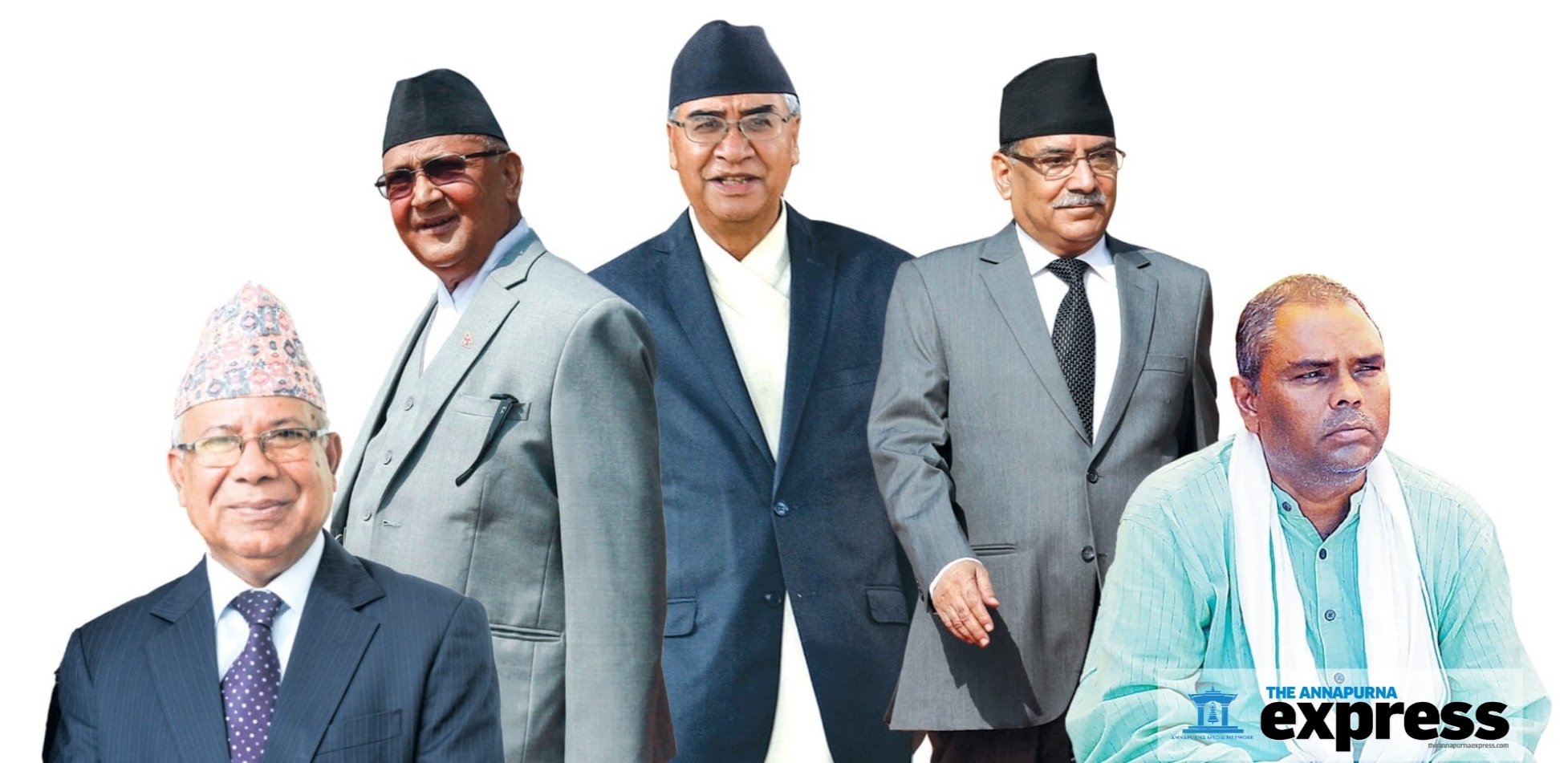NC leader Shekhar Koirala recently said his party cannot go below 100 seats, even though such a compromise is a must if the ruling parties are to contest as allies.
The electoral alliance has become a priority for the top leaders of major ruling parties not just to beat the KP Oli-led CPN-UML, the main opposition known for its strong organization and support base. They also harbor ambitions of occupying high state bodies. It is no secret that Congress President and current Prime Minister Sher Bahadur Deuba wishes to be elected to the post of the country’s executive head for the sixth time. He became prime minister for the fifth time last July following the Supreme Court verdict to unseat Oli. Maoist Chairman Dahal, already a two-time prime minister, has also expressed his interest in occupying the top seat again. Baburam Bhattarai, who recently formed Nepal Samajbadi Party after severing ties with the Janata Samajbadi, as well as Madhav Kumar Nepal, the leader of Unified Socialist, have also already served as prime ministers. In the UML, Oli is the uncontested prime ministerial candidate, also having already occupied the office thrice between 2015 and 2021. The electoral alliance more or less serves the interests of the old party guards who want to remain in power. Some young leaders of major parties are ready to contest elections alone, come what may. Their focus is to strengthen party organization rather than joining forces with ideologically incompatible parties to get to power. But it is the senior and aging leaders who call the shots. Political analysts and pundits say the November elections will likely re-elect the same leaders who have been in power for decades as party leaders are unlikely to distribute election tickets to new candidates, women and representatives of marginalized groups. Preference will be given to the candidates close to senior party leaders, says Mina Poudel, a political analyst. “Even if there are women and marginalized community candidates in the fray, they will be relatives and henchmen of senior leaders,” she says. UML has decided not to repeat the candidates who were defeated in the previous elections or those selected under the proportional representation (PR) electoral system. Senior party leaders, many of them above 70 and well past their prime, are sure to get tickets. NC’s Deuba, who has been contesting from Dadeldhura since 1990s, will be vying from the same constituency again. The same logic applies to other Congress leaders such as Krishna Prasad Sitaula and Ram Chandra Poudel, as well as senior leaders of other political parties including Dahal, Nepal, Bhattarai, Jhala Nath Khanal, Mahantha Thakur, Bam Dev Gautam and Kamal Thapa. These leaders are willing to go to any length to ensure their victory. Bhattarai, for example, severed ties with the Yadav faction of the Janata Samajbadi, went on to form a new party and with the elections looming, approached the Maoist Center, his old party, for an electoral alliance. Gautam, the former UML leader, has also reached out to the Maoist Center to secure a parliamentary seat. The top priority for senior party leaders, analysts say, is to ensure their own victory and then to hand out election tickets to their close supporters. Young leaders and cadres don’t like the reliance of the party leadership on electoral alliance. Nowhere is this more evident than in the Congress. The party saw the emergence of many rival candidates during the local level elections held in May after many qualified local-level leaders were denied election tickets because of the alliance calculus. Nain Singh Mahar, a Congress leader close to Deuba, admits that his party is in a tough situation. He says the party will have rival candidates even if it decides to field candidates in all 165 direct election seats. “If we go into elections as a part of the alliance, we expect to be allocated 90 to 100 seats. In that case, there is a little chance of young leaders getting to contest elections,” says Mahar. “On the one hand, we cannot break the alliance and on the other, this alliance will rile many young leaders.” In 2017, the NC fought elections alone against the UML-Maoist left alliance, resulting in what was a historic drubbing. Even though the party was alone in the fray, there were rival NC candidates in more than a dozen constituencies. With or without the alliance, the leadership of major parties has never favored fresh candidates, or women or people from marginalized communities for that matter. The constitution makes it mandatory for parties to appoint 33 percent women while selecting candidates under the FPTP and PR categories. But youth and woman candidates were few and far between under the FPTP category in the 2017 elections. Only six women candidates were elected under the FPTP category—while 84 were elected under the PR category. Bal Krishna Mahuhang, associate professor at Tribhuvan University, says top leaders of major parties have never been serious about making the parliament an inclusive body. “They prefer to have the same-old set of leaders in the driving seat,” he says.











